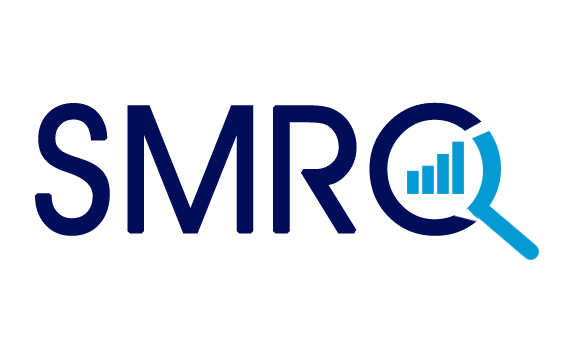In today’s fast-paced, data-driven world, genuine feedback is the fuel that drives business success. But what happens when that feedback is compromised? It’s easy to fall into the trap of survey manipulation, where data is either faked or altered to meet certain expectations. This is a significant issue that has the potential to corrupt insights and lead businesses astray. Let’s explore the pitfalls of this problem and how real, hands-on market research can save your business from making costly mistakes.
Understanding the Importance of Genuine Market Research
Market research serves as the backbone of any successful business strategy. The quality of the insights you gather directly influences the decisions you make. However, in many cases, the data that businesses rely on can be manipulated at various stages—often without them realizing it.
When surveys are not handled with care, and market researchers are not actively involved in the entire process, the data loses its value. This can lead to skewed results, misinformed decisions, and ultimately, lost revenue. Genuine market research is critical in ensuring that businesses have the most accurate and actionable insights.

Common Pitfalls in Customer Satisfaction Surveys
Customer satisfaction surveys are meant to capture real feedback from customers to improve products and services. However, these surveys are often prone to manipulation, especially when front-line staff, who are often evaluated based on survey outcomes, are involved.
Survey Manipulation: A Growing Concern
Manipulating customer feedback isn’t a new problem, but it has become more rampant as businesses increasingly depend on data to make decisions. Take, for instance, a scenario where a staff member completes a customer satisfaction survey on behalf of a customer to avoid negative feedback. This manipulation undermines the entire purpose of the survey.
When surveys are manipulated, companies lose out on the opportunity to receive genuine feedback that could help them improve their customer service. Worse, it gives management a false sense of achievement while underlying problems remain unsolved.
How Fake Data Corrupts Insights and Decision-Making
Manipulated survey data paints a misleading picture. It may show high levels of customer satisfaction when, in reality, there are significant issues that need addressing. This false information can trickle into various aspects of business strategy, from marketing to operations, leading to decisions based on skewed perceptions.
In an environment where businesses compete fiercely for customer loyalty, making decisions based on inaccurate data can be disastrous.
The Role of Market Researchers at Every Stage
For market research to have a meaningful impact, researchers must be involved in every stage of the process. Their involvement ensures that the data being collected is accurate, ethical, and reflective of real customer experiences.
Involvement in Survey Design and Implementation
Effective market research begins with a well-designed survey. Researchers should have a hands-on role in crafting the questions, ensuring they are unbiased, relevant, and capable of gathering actionable insights. It’s not enough to simply design a survey and pass it off; researchers must also oversee its implementation.
Why Researchers Must Be “On the Ground” During Fieldwork
Beyond the design phase, researchers should be present during fieldwork to ensure that surveys are being conducted as intended. This includes observing how surveys are administered, ensuring participants are not being coached or influenced, and addressing any issues in real-time. Being hands-on during this stage also allows researchers to tweak the survey if unexpected issues arise.
Real-World Examples of Survey Manipulation
Survey manipulation happens more often than companies realize, and it can have dire consequences. Consider the case of a reputed clinic in the UAE where the staff filled out satisfaction surveys on behalf of patients to ensure positive results.
Case Study: Clinic Experience in UAE
In this particular case, a clinic in the UAE experienced a situation where survey manipulation became evident. The clinic, like many service-based businesses, sought to collect customer feedback to gauge patient satisfaction and identify areas for improvement. However, during this process, an alarming practice was uncovered: the receptionist, instead of allowing patients to complete their satisfaction surveys independently, requested their One-Time Password (OTP) sent via SMS to access the survey on her own device.
By asking for the OTP, the receptionist was able to complete the survey herself, ensuring that only positive feedback was submitted. This manipulation guaranteed that no negative comments or criticisms would reach management, protecting the staff from potential repercussions or scrutiny. While it may have seemed like a convenient way for the clinic’s staff to maintain favorable ratings, this practice had significant consequences.
The Impact on the Clinic’s Service Quality
The immediate consequence of this manipulation is the lack of genuine patient feedback. The clinic is led to believe that their services are meeting or exceeding expectations, when in reality, any underlying issues remain unaddressed. Critical areas that may need improvement—such as wait times, staff professionalism, or treatment quality—are masked by falsely positive reviews. Over time, these issues could accumulate, leading to a decline in patient satisfaction, retention, and overall trust in the clinic’s services.
Long-Term Business Implications
In the long term, such manipulations can erode the clinic’s credibility. Patients may feel discouraged from providing real feedback if they suspect their opinions won’t be taken seriously. Moreover, management might make decisions based on inaccurate data, believing that operations are running smoothly when, in fact, there are significant problems that need attention.
Additionally, this manipulation affects the overall patient experience. If patients notice that their feedback is being hijacked or disregarded, it can lead to feelings of distrust and dissatisfaction, potentially driving them to seek care elsewhere. In an industry where trust and customer satisfaction are paramount, such practices can have damaging consequences.
Lessons for Businesses
This case underscores the importance of maintaining transparency and integrity in the feedback collection process. Businesses that manipulate customer feedback are ultimately deceiving themselves, missing valuable opportunities to improve their services. For healthcare providers in particular, where patient trust and care quality are critical, genuine feedback can make all the difference in delivering exceptional service.
By ensuring that patients and customers have a direct voice and by implementing strong quality control measures, companies can gather authentic insights that help drive real improvements and long-term success.
How Manipulated Data Affects Customer Experience Strategy
When businesses rely on manipulated data, they lose sight of their customers’ real needs and concerns. This not only affects the company’s ability to enhance customer experience but also erodes trust between the business and its customers. In the long run, this can lead to a decline in customer retention and satisfaction.
Solutions to Prevent Survey Manipulation
Preventing survey manipulation requires a combination of technological solutions and ethical business practices. Companies must implement stringent quality control measures to ensure that the data they collect is authentic.
Implementing Rigorous Quality Control Measures
Quality control is the first line of defense against survey manipulation. This includes auditing survey results for inconsistencies, conducting follow-up verification, and analyzing response times and patterns. When irregularities are found, these surveys should be flagged and removed from the data set.
Technology-Driven Solutions: Data Verification & Time Stamping
Technology can play a crucial role in ensuring data integrity. Techniques such as device MAC address tracking and time stamping can help detect suspicious patterns. For example, if multiple surveys are completed from the same device in an unusually short time, it may indicate manipulation.
How SMRC Ensures Integrity in Market Research
At SMRC, we take data integrity seriously. We employ advanced data verification strategies, including geo-location tracking and rigorous quality control checks. Our researchers are deeply involved in every stage of the project, from designing surveys to conducting on-site audits. We believe in transparency, and our clients trust us to deliver honest, actionable insights.
The Importance of Ethics and Transparency in Data Collection
In a world where businesses are increasingly reliant on data, maintaining ethics and transparency in data collection is more important than ever. Companies that prioritize honest feedback and uphold ethical standards will not only earn the trust of their customers but will also gain a competitive advantage.
Building Trust in Market Research
Customers are more likely to provide genuine feedback when they trust that their responses will be used for improvement, not punishment. Building this trust requires businesses to be transparent about how they collect and use feedback.
Benefits of Honest Feedback for Long-Term Business Success
Genuine feedback is invaluable for driving long-term business success. It helps companies identify weaknesses, address them, and ultimately create better products and services. Honest feedback also strengthens customer loyalty, as customers feel valued and heard.
Conclusion: The Value of Integrity in Market Research
Integrity in market research is not just about getting the most accurate data; it’s about fostering trust between businesses and their customers. By preventing survey manipulation and ensuring that market researchers are involved at every stage, companies can gain the insights they need to make informed decisions and stay ahead of the competition.
FAQs
- Why is survey manipulation a problem?
Survey manipulation leads to inaccurate data, which can result in poor business decisions and lost opportunities for improvement. - How can businesses prevent survey manipulation?
Businesses can implement strict quality control measures, use technology to track data integrity, and involve market researchers in every step of the process. - What role do market researchers play in preventing data manipulation?
Market researchers are essential in designing unbiased surveys, overseeing fieldwork, and ensuring the authenticity of collected data through quality control methods. - How does SMRC ensure data integrity in market research?
SMRC uses advanced analytic solutions, data verification strategies, and a hands-on approach to prevent manipulation and ensure the accuracy of all survey data. - What are the long-term benefits of genuine customer feedback?
Honest feedback helps businesses improve their offerings, enhances customer loyalty, and leads to long-term success.

